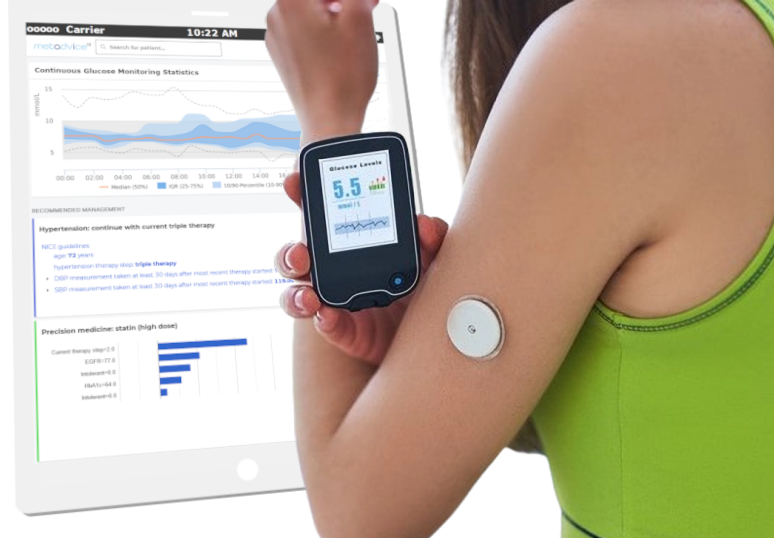The project consists in transferring clinical knowledge for the management of people with diabetes from UDEM / Inselspital into an Artificial Intelligence that is capable of advising clinicians who face complex therapeutic decisions in front of patients using Continuous Glucose Monitoring (CGM). Leveraging an existing Metadvice product for clinical decision support in cardio-metabolic diseases, the project will extend its AI companion aiding clinical decision helping general practitioners with skills that are accessible so far only in national competence centres. Through a synergistic human-AI collaboration, the project will considerably improve the quality, scalability and personalisation of diabetes care.

Diabetes is one of the fastest growing chronic diseases in the word, with major effects on both people with diabetes and wider society. Across Europe, the demand for diabetes care is exceeding the available capacity and resources. This is driven by an increasing burden of chronic diseases, associated with an ageing population, poor lifestyle habits and new environmental realities. This is further compounded by a mounting shortage of diabetes specialists and worsening of patient-to-provider ratios. Digital approaches such as the use of CGM has the potential to empower systems to manage costs and engage their resources efficiently; to improve the quality, personalisation and continuity of care for people with diabetes, including by reducing geographical barriers to access to care; and finally, to foster innovation and collaboration among industry players to develop solutions to support novel models of care.
To properly exploit digital technologies such as CGM, the doctor needs to analyse and interpret reams of data and make a number of complex therapeutic decisions that combine lifestyle changes (e.g. reduce carbohydrate intake) and pharmacological avenues (e.g. insulin dose titration or initialisation of a new or alternative glucose-lowering agents). Such decisions can be prepared / justified using artificial intelligence, relying on a combination of electronic medical records and CGM data to recommend / explain the best course of action in a manner that empowers a larger number of clinicians to advise diabetes patients who are not all benefiting from specialist advice. Apart from improving the healthcare quality, the AI should also reduce the workload and increase the efficacy / efficiency /standardisation of clinical workflows, optimise data management and save personnel costs.
The health contribution of the project is three-fold. Firstly, by evaluating best practice rules worked out by the UDEM/Inselspital for much larger number of patients than it is currently possible to reach, it will be possible to democratise access to specialist knowledge for a much larger number of patients who do not benefit from the possibility of regularly visiting the Inselspital. The second contribution is to contrast rules that are likely to work for the majority of patients against individualised recommendations, using a established data analytics pipeline (involving neural network / transfer learning / Shapley values / Retrospective statistical support) to automatically identify subgroups, greater use of individual parameters and better customised treatment optimisation and lifestyle coaching. The third contribution is to open new avenues for virtual diabetes care programs as in the field of diabetes care experts agree that most routine care (80% of episodes) could be handled fully via telemedicine.
